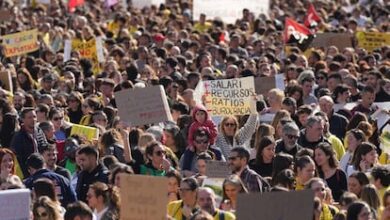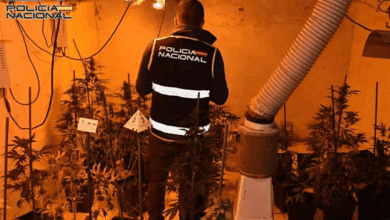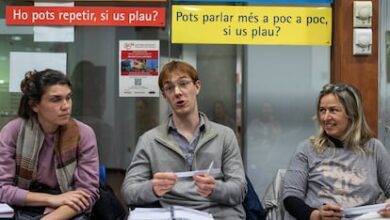
On October 15, Catalonia will see a large-scale strike organized in solidarity with Palestine. On this day, the usual order in the region will be disrupted: many areas of daily life will face restrictions, and thousands of residents will feel the impact themselves.
The regional authorities have determined in advance how key services will operate. Public transport—including trains, metro, buses, and trams—will run at roughly two-thirds of the normal schedule. Special attention will be given to the transportation of essential goods, especially for hospitals and pharmacies. Tow trucks will continue to clear accidents and obstacles from the roads to prevent a transport collapse.
In medical facilities, emergency care and critical procedures such as chemotherapy and radiotherapy will remain available. However, only a quarter of the staff will be on duty in clinics and urgent care centers, and half of the employees will work at the blood bank. Emergency surgeries and round-the-clock pharmacies will continue operating without changes. A minimal staff will also be maintained in cleaning, hotel, and sanitary services to ensure hospitals continue to receive support.
Educational institutions will also switch to special operations. At least one administrator will remain in each school, and for every four classes in the elementary and preschool stages, there will be two teachers. In secondary schools, there will be one teacher for every three classes. In kindergartens, schools for children with special needs, and cafeterias, half of the staff will remain on duty. Social services, nursing homes, and shelters for minors will operate on a weekend schedule. Funeral services will maintain nearly full staff for response teams, but administrative support for families will be cut by half. In private security, the minimum staff will depend on the site: nearly full staffing at strategic locations, and about 60% for security control centers.
Emergency response services, such as the 112 hotline, will maintain 80% of their staff to ensure response times are not affected. Water, gas, electricity, and waste removal will be provided at levels sufficient to handle emergencies and meet basic needs. Catalan public media, including 3Cat, will cut their broadcast time in half, but emergency news updates will remain fully available.
This approach allows the region to uphold the right to protest without depriving residents of essential services. Authorities hope that balancing the strike with the preservation of key functions will help avoid serious disruptions in daily life in Catalonia.












